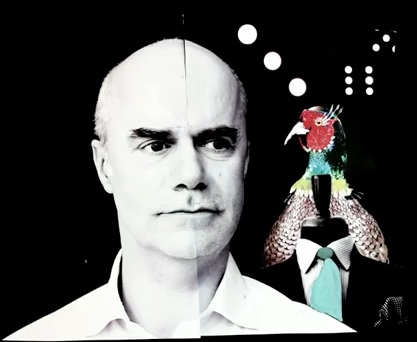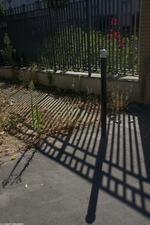Perfumer Bertrand Duchaufour as the new Pope of Niche Fragrances {Scented Thoughts}

Perfumer Bertrand Duchaufour is the new Pope of niche fragrances, apparently. His current compositions can be found across several well-respected, so-called niche brands: Frapin, Penhaligon's, L'Artisan Parfumeur, Amouage, Eau d'Italie, Parfums MDCI, and soon,The Different Company, for whom he wlll have the title of in-house perfumer.
Is Duchaufour the new perfumer à la mode or the new visionary of the niche-fragrance landscape remains to be seen, and smelled. He is currently somewhat reminiscent of the former high-voltage media presence of perfumer Jean-Claude Ellena, who has more recently turned to more instrospective writing as his Journal du Parfumeur is about to be published in May 2011...
The Duchaufour paradox and an interesting phenomenon to contemplate is how his de facto defining input will somewhat undermine potentially the very concept of niche as constituting small subsets of particular, independent olfactory universes.
Perfumers in general do work for several, diverse brands in their profession but there is this idea with niche perfumery that the labels have to be special and original, particularly individual. To have one individual thinking behind several individual brands is going to put the onus on Duchaufour to reach a delicate, perhaps never-before-seen balance. All of these brands are looked up to for potentially bringing new ideas and novel sensations to contemporary perfumery.
Second, it will be expected that one will have to gauge how personally and creatively the perfumer will be able to take up the challenge of pleasing distinct brands and himself at the same time although probably he will benefit from a carte blanche effect.
It begs the question in the end of why Bertrand Duchaufour is not establishing his own brand at this point like Patricia de Nicolaï, Olivia Giacobetti or like perfumer Francis Kurkdjian did or Emilie Bouge given his peak of creative energy and his perfumery being, or being perceived at the very least, as being in high demand. This would take care of the unmitigated value that a "signature" can bring to a perfume and perfumery and would allow Duchaufour to forsake all niceties he might still feel like he needs to stoop to.
One of the traditional psychological traits of perfumers is that they are good listeners and obstetrician of ideas for others.
Duchaufour himself at Penhaligon's operates according to a two-tiered authorial approach: there are the perfumes he technically creates but which bear less of his personal signature and the perfumes who invisibly bear his signature traced in red ink. For the latter group, it means that he was really present in the creative process and is willing to recognize them as Duchaufour creations. It's a bit complicated, but that's the reality of perfume authorship.
With the rise of the perfumer as author rather than as a compliant, supple mind and sounding-boards for others, it raises the question of why they could not create more often their own universes instead of dwelling at others' perfumeries.
One response of course is that they simply do not want to take care of the business side of the equation. Still, there is a logic to this premium placed on the perfumer's signature.
It will thus be interesting to observe shifts in the new landscape of creative perfumery, an expression which is probably preferable to that of niche perfumery which seems to allude mostly to market shares and taste tribes. In Creative Perfumery, the need to create would come foremost; it still needs to be able to sell of course in order to be sustainable, but not as many bottles as in designer perfumery.
So, was Bertrand Duchaufour picked because people want to support his work or because they wish to move more bottles within the niche-perfumery market remains to be evaluated. It could either signal a realization that Art by Duchaufour is needed more in this world or hint at a form of conformism and commercialism building on the perceived hotness of the latest "in" perfumer seen as exchangeable and swtichable commodity. The concomittant departure of Céline Ellena from The Different Company may just as well signal that there is a new game in town called "perfumed musical chairs." This is when the in-house perfumer thinks he or she is in but next is out. Ellena's penultimate composition De Bachmakoff was certainly about signature, creativity and meta-discourse about the perfume art scene. But The Different Company or the perfumer herself need breathers or renewal.
It again begs the question for me of the mercenary, for-hire aspect of the perfumer's profession versus his or her signature serving as the foundation of an independent creative house under her or his name.
With Bertrand Duchaufour in 2011, expect to see his olfactory signature travel across the contemporary creative perfumery scene.








